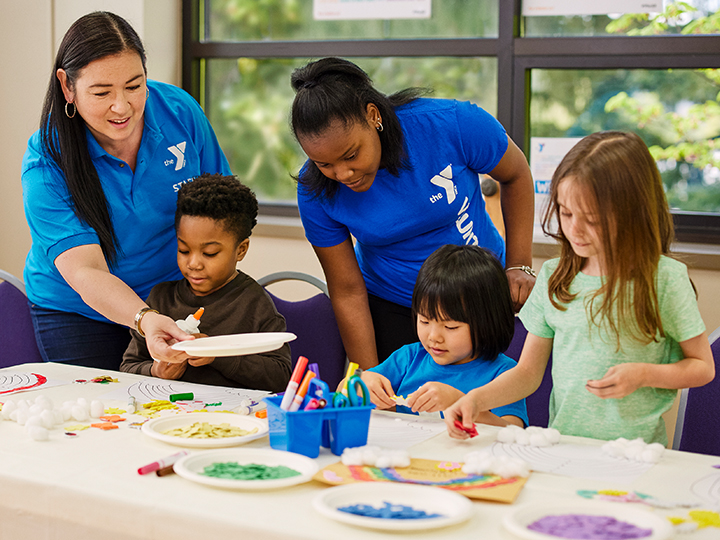Play is at the heart of a day care centre’s curriculum, fueling children’s growth and development. It engages their curiosity, promotes creativity, and nurtures essential social skills. Through imaginative scenarios, kids learn problem-solving and cooperation while exploring emotions and interactions. Sensory activities spark cognitive and motor skills, helping them make sense of the world. A structured play-based approach not only balances indoor and outdoor experiences but also enhances teamwork and communication. This lively environment supports children’s emotional well-being and lays the groundwork for lifelong learning. Curious about how specific play activities contribute? There’s more to discover!
Importance of Play in Learning
Play is essential for learning because it engages children’s natural curiosity and fosters critical thinking skills. Through imaginative play, kids explore different roles and scenarios, which encourages problem-solving and creativity. When they pretend to be superheroes or animals, they’re not just having fun; they’re also learning to think critically about their environment and how to interact with others. To see these principles in action, you can book a tour with Learning Avenues to observe how structured play enhances educational development.
Sensory exploration further enhances this learning process. As children touch, taste, and manipulate various materials, they develop cognitive and motor skills. This hands-on experience is crucial for understanding the world around them.
Types of Play Activities
A variety of play activities can enhance children’s learning experiences and foster their development in day care settings.
Imaginative play, where kids create their own stories and scenarios, sparks creativity and boosts cognitive skills. You’ll notice that children often transform everyday objects into tools for their adventures, showcasing their ability to think outside the box.
Additionally, sensory exploration activities engage children’s senses through hands-on experiences. Whether it’s playing with sand, water, or different textures, these activities help kids understand the world around them.
You can encourage both types of play by providing diverse materials and a safe environment. By embracing imaginative play and sensory exploration, you’ll support essential developmental milestones in a fun and engaging way.
Social Skills Development
Engaging in group activities helps children build essential social skills and fosters teamwork in daycare settings. Through cooperative games and peer interactions, kids learn crucial lessons about communication, empathy, and conflict resolution.
Here are four key benefits of these activities:
- Enhanced Communication: Children express their thoughts and feelings, improving verbal and non-verbal skills.
- Teamwork: Working together on tasks teaches them the importance of collaboration and sharing responsibilities.
- Conflict Resolution: Managing disagreements during play helps kids develop problem-solving strategies.
- Empathy: Understanding others’ feelings during interactions nurtures compassion and kindness.

Cognitive Growth Through Play
Through interactive play, children not only enhance their social skills but also stimulate cognitive growth by exploring new concepts and solving problems.
Engaging in imaginative play allows kids to create scenarios, fostering creativity and critical thinking. When they pretend to be different characters or invent stories, they develop language skills and learn to express ideas.
Additionally, problem solving play challenges them to think logically and strategize. For instance, when building with blocks or playing games, they encounter obstacles that require innovative solutions. By maneuvering through these challenges, children strengthen their analytical skills and gain confidence in their abilities.
Ultimately, both imaginative and problem solving play are essential components of a day care curriculum, laying the foundation for lifelong learning and cognitive development.
Emotional Well-Being and Play
Play acts as an essential tool for enhancing emotional well-being in children, allowing them to express feelings and build resilience. Through various forms of play, kids learn to navigate their emotions, fostering healthy emotional expression.
Here are four ways play contributes to their emotional development:
- Safe Exploration: Children can safely explore feelings via role-playing and imaginative scenarios.
- Social Skills: Group play encourages interaction, helping kids learn empathy and cooperation.
- Stress Relief: Engaging in play therapy provides a constructive outlet for stress and anxiety.
- Problem Solving: Play situations challenge children to find solutions, boosting confidence and emotional strength.
Creating a Play-Based Curriculum
A well-structured play-based curriculum fosters creativity and critical thinking while allowing children to learn naturally.
By integrating indoor activities and outdoor exploration, you create a balanced environment.
Sensory play enhances their understanding of the world, while imaginative play encourages storytelling and role-playing.
Incorporating structured games helps teach rules and cooperation, while unstructured play offers freedom for creative expressions.
It’s crucial to blend these elements, allowing children to engage in cooperative play that builds teamwork skills.
Encourage exploration and discovery, helping them navigate their interests and challenges.
By creating this dynamic curriculum, you support holistic development, ensuring children thrive emotionally, socially, and cognitively.
Ultimately, a play-based approach empowers children to learn through joyful experiences.
Conclusion
Incorporating play into your day care centre’s curriculum is essential for fostering children’s growth and development.
By embracing various play activities, you’re helping kids enhance their social skills, boost cognitive abilities, and nurture emotional well-being.
Remember, play isn’t just fun—it’s a powerful learning tool.
By creating a play-based curriculum, you’re setting the stage for a vibrant, engaging environment where children can thrive.
So, let play be at the heart of your teaching approach!